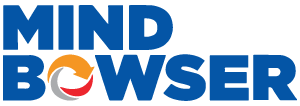In the complex landscape of healthcare interoperability, implementing reliable FHIR servers remains a significant technical challenge. This article provides an in-depth technical examination of Aidbox, a production-grade FHIR Server implementation that addresses many of the complex engineering challenges in healthcare data exchange.
Aidbox is built on a polyglot architecture that combines multiple technologies to deliver a high-performance FHIR Server with extended capabilities:
▪️Uses a document-relational model with JSONB columns for FHIR resource storage
▪️Implements efficient indexing strategies specifically optimized for FHIR search parameters
▪️Uses PostgreSQL features like GIN indexes for JSON content and B-tree indexes for performance
▪️Maintains transactional integrity with ACID compliance for all FHIR operations
▪️Leverages immutable data structures for efficient FHIR resource manipulation
▪️Implements a JVM-based runtime environment for stability and performance
▪️Uses non-blocking I/O for high concurrency handling
▪️Employs efficient memory management with garbage collection tuned for healthcare workloads
Aidbox’s FHIR Server functionality fully adheres to the specification standards, including R4 and R5. It supports:
▪️Complete implementation of the FHIR specification (R4, R5)
▪️Support for all FHIR REST operations (read, vread, search, create, update, patch, delete, history)
▪️As a FHIR Server, implementation of advanced operations like $validate, $expand, $translate, and $everything
▪️Full support for FHIR search specifications, including modifiers, prefixes, and composites
Related read: Getting Your Architecture FHIR Ready: A Step-by-Step Guide
▪️RESTful API endpoints with content negotiation (JSON, XML)
▪️WebSocket endpoints for subscription and real-time data access
▪️GraphQL interface with FHIR-specific optimizations
▪️SMART on FHIR authorization server integration
▪️These features extend the power of the Aidbox FHIR Server to various client applications
Aidbox employs a sophisticated storage strategy that differs from traditional RDBMS approaches:
CREATE TABLE "patient" (
id TEXT PRIMARY KEY,
txid BIGINT NOT NULL,
resource_type TEXT DEFAULT 'Patient',
status TEXT DEFAULT 'active',
resource JSONB NOT NULL,
ts TIMESTAMP DEFAULT CURRENT_TIMESTAMP
);This hybrid approach allows for:
▪️Schema validation at the PostgreSQL level
▪️Efficient querying through both SQL and FHIR search parameters
▪️Document-based flexibility for extensions and profiles
▪️Performance optimizations for common query patterns
Aidbox implements the FHIR search specification through a sophisticated query compilation pipeline:
▪️Parse search parameters from HTTP request
▪️Resolve search parameter definitions from the SearchParameter registry
▪️Compile to SQL expressions optimized for the PostgreSQL query planner
▪️Execute with parameter binding to prevent SQL injection
For example, a FHIR search like:
GET /Patient?name:exact=SMITH&birthdate=gt2000-01-01&_sort=birthdateIs transformed into SQL similar to:
SELECT resource FROM patient
WHERE
(resource->'name'->0->>'family') = 'SMITH' AND
(resource->>'birthDate')::date > '2000-01-01'::date
ORDER BY (resource->>'birthDate')::date ASC
LIMIT 100;This compilation process includes optimizations like:
▪️Using appropriate PostgreSQL operators for FHIR search prefixes (eq, gt, lt, ge, le)
▪️Handling FHIR search modifiers like : exact, : contains, :missing
▪️Managing reference resolution for chained searches
▪️Implementing FHIR _include and _revinclude through SQL joins
Aidbox implements a comprehensive terminology server according to the FHIR terminology specification:
(def code-system-schema
{:resourceType {:type "string" :constant "CodeSystem"}
:url {:type "string" :required true}
:version {:type "string"}
:name {:type "string"}
:title {:type "string"}
:status {:type "string" :enum ["draft" "active" "retired" "unknown"]}
:experimental {:type "boolean"}
:date {:type "dateTime"}
:publisher {:type "string"}
:description {:type "string"}
:caseSensitive {:type "boolean"}
:valueSet {:type "string"}
:hierarchyMeaning {:type "string" :enum ["grouped-by" "is-a" "part-of" "classified-with"]}
:compositional {:type "boolean"}
:versionNeeded {:type "boolean"}
:content {:type "string" :enum ["not-present" "example" "fragment" "complete" "supplement"]}
:supplements {:type "string"}
:count {:type "integer"}
:concept {:type "array"
:schema {:type "object"
:schema {:code {:type "string" :required true}
:display {:type "string"}
:definition {:type "string"}
:designation {:type "array"}
:property {:type "array"}
:concept {:type "array" :refers "concept"}}}}})The terminology service implements these key operations:
▪️$lookup: Retrieve concept details from a CodeSystem
▪️$validate-code: Validate if a code is valid in a given context
▪️$subsumes: Check hierarchical relationships between concepts
▪️$compose: Create value sets from code system expressions
▪️$expand: Expand a ValueSet into its full list of codes
Each operation is implemented with performance optimizations like:
▪️In-memory caching of frequently used code systems
▪️Materialized views for common expansions
▪️Prefix trie structures for concept lookup by code
Aidbox implements a comprehensive security model that extends beyond basic OAuth 2.0:
The access control system uses a Policy Decision Point (PDP) architecture with attribute-based access control:
(defn evaluate-access [request context policies]
(let [applicable-policies (filter #(policy-applies? % request context) policies)
decisions (map #(evaluate-policy % request context) applicable-policies)]
(if (some #(= :deny %) decisions)
{:decision :deny}
(if (some #(= :allow %) decisions)
{:decision :allow}
{:decision :deny :reason :no-applicable-policy}))))This allows for sophisticated access patterns like:
▪️Resource-level policies: “Clinicians can read all Patient resources”
▪️Instance-level policies: “Clinicians can read Patient resources where they are the assigned provider”
▪️Attribute-level policies: “Administrative staff can see Patient demographics but not clinical data”
▪️Operation-level policies: “Research staff can run aggregate queries but not view individual records”
The SMART on FHIR implementation follows the OAuth 2.0 authorization framework with healthcare-specific extensions:
▪️Discovery Endpoint exposes a capability statement with SMART extensions
▪️Authorization Endpoint handles scope requests with SMART scopes
▪️Token Endpoint issues JWT tokens with SMART claims
▪️Userinfo Endpoint provides practitioner context
A sample SMART app launch sequence is processed through:
# Discovery
GET /.well-known/smart-configuration# Authorization
GET
/auth/authorize?response_type=code&client_id=my-app&redirect_uri=https://app.example.com/callback&scope=patient/*.read&state=random-state-string&aud=https://aidbox.example.com/fhir
# Token Exchange
POST /auth/token
grant_type=authorization_code&code=issued-code&redirect_uri=https://app.example.com/callback&client_id=my-app# API Access with Token
GET /fhir/Patient/123
Authorization: Bearer eyJhbGci...Aidbox uses Zen for schema and validation. This gives the FHIR Server the flexibility to define and validate custom resource extensions with high precision.
{ns aidbox
import #{aidbox.patient}
SpecialPatient
{:zen/tags #{zen/schema zen/entity}
:type zen/map
:extends #{aidbox.patient/Patient}
:keys
{:specialNeeds {:type zen/boolean}
:priorityScore {:type zen/integer
:min 0
:max 100}
:careCoordinator {:type zen/map
:keys {:reference {:type zen/string}
:display {:type zen/string}}}}}
}This schema system provides:
▪️Validation beyond FHIR structure definitions
▪️Inheritance and polymorphism for schema reuse
▪️Advanced constraint expressions
▪️Efficient validation compilation
Beyond standard FHIR operations, Aidbox provides an RPC layer for defining custom operations:
{:zen/tags #{aidbox/service}
:engine aidbox.zen/http-rpc
:method post
:uri "/calculate-risk-score"
:format :json
:middleware [{:type auth/authorization
:policy :require-admin}]
:handler
(fn [ctx]
(let [patient-id (get-in ctx [:params :patient-id])
patient (db/get-resource "Patient" patient-id)
score (calculate-risk-score patient)]
{:status 200
:body {:score score}}))}This allows for the development of specialized APIs while maintaining the security and monitoring infrastructure.
Aidbox implements several techniques to optimize FHIR search performance:
▪️Search Parameter Registry with pre-compiled SQL expressions
▪️Query Plan Caching for repeated similar queries
▪️Parameterized Execution to leverage PostgreSQL’s prepared statement cache
▪️Materialized Search Views for common search patterns
▪️Asynchronous Indexing to maintain performance during bulk operations
Query profiling tools within Aidbox allow inspection of search performance:
{
"query": "/Patient?name=SMITH",
"execution-time": 42.3,
"plan": {
"Plan": {
"Node Type": "Index Scan",
"Parallel Aware": false,
"Scan Direction": "Forward",
"Index Name": "patient_name_idx",
"Relation Name": "patient",
"Alias": "patient",
"Startup Cost": 0.42,
"Total Cost": 8.45,
"Plan Rows": 1,
"Plan Width": 32
}
}
}For large-scale data operations, Aidbox implements the FHIR Bulk Data API specification using a specialized processing pipeline:
▪️Async Job Creation: Returns a job ID immediately
▪️Background Processing: Handles resource extraction in batches
▪️NDJSON Generation: Creates newline-delimited JSON for efficient parsing
▪️S3-Compatible Storage: Uploads results to object storage
▪️Manifest Generation: Provides download URLs for completed exports
Example implementation for bulk export:
(defn start-bulk-export [params]
(let [job-id (generate-id)
query (compile-bulk-query params)
job {:id job-id
:status "in-progress"
:created (now)
:request params}]
(db/save "BulkExportJob" job)
(future (process-bulk-export job-id query))
{:status 202
:headers {"Content-Location" (str "/fhir/$export-poll/" job-id)}}))
(defn process-bulk-export [job-id query]
(try
(let [resources (execute-in-batches query 1000)
files (generate-ndjson-files resources)
urls (upload-to-storage files)
manifest (create-manifest urls)]
(db/update "BulkExportJob" job-id
{:status "completed"
:manifest manifest
:completed (now)}))
(catch Exception e
(db/update "BulkExportJob" job-id
{:status "failed"
:error (.getMessage e)
:completed (now)}))))Aidbox supports horizontal scaling through stateless application nodes:
# docker-compose.yml for HA deployment
version: '3.7'
services:
db-master:
image: postgres:13
volumes:
- pg_data:/var/lib/postgresql/data
environment:
POSTGRES_USER: postgres
POSTGRES_PASSWORD: postgres
POSTGRES_DB: aidbox
db-replica-1:
image: postgres:13
command: >
-c hot_standby=on
-c max_standby_streaming_delay=30s
-c hot_standby_feedback=on
environment:
POSTGRES_USER: postgres
POSTGRES_PASSWORD: postgres
POSTGRES_DB: aidbox
depends_on:
- db-master
aidbox-1:
image: healthsamurai/aidbox:latest
depends_on:
- db-master
environment:
PGHOST: db-master
PGDATABASE: aidbox
PGUSER: postgres
PGPASSWORD: postgres
BOX_AUTH_ADMIN_PASSWORD: password
aidbox-2:
image: healthsamurai/aidbox:latest
depends_on:
- db-master
environment:
PGHOST: db-master
PGDATABASE: aidbox
PGUSER: postgres
PGPASSWORD: postgres
BOX_AUTH_ADMIN_PASSWORD: password
load-balancer:
image: nginx:latest
ports:
- "80:80"
volumes:
- ./nginx.conf:/etc/nginx/nginx.conf
depends_on:
- aidbox-1
- aidbox-2
volumes:
pg_data:This configuration provides:
▪️Database failover with master/replica setup
▪️Load balancing across application nodes
▪️Session persistence with shared database
▪️Horizontal scaling capabilities
For production environments, Aidbox provides Kubernetes manifests for orchestrated deployment:
# Excerpt from k8s deployment manifests
apiVersion: apps/v1
kind: StatefulSet
metadata:
name: aidbox-db
spec:
serviceName: aidbox-db
replicas: 3
selector:
matchLabels:
app: aidbox-db
template:
metadata:
labels:
app: aidbox-db
spec:
containers:
- name: postgres
image: postgres:13
volumeMounts:
- name: data
mountPath: /var/lib/postgresql/data
env:
- name: POSTGRES_USER
valueFrom:
secretKeyRef:
name: aidbox-secrets
key: db-user
# Additional environment variables...
volumeClaimTemplates:
- metadata:
name: data
spec:
accessModes: [ "ReadWriteOnce" ]
resources:
requests:
storage: 100GiThe Kubernetes deployment includes:
▪️StatefulSets for database persistence
▪️Deployments for stateless application nodes
▪️ConfigMaps for environment-specific configuration
▪️Secrets for sensitive information
▪️Services for internal and external access
▪️Ingress for routing and TLS termination
▪️HorizontalPodAutoscalers for dynamic scaling
Aidbox provides tools for building ETL pipelines for legacy data migration:
# Sample ETL mapping definition
(def patient-mapping
{:resourceType "Patient"
:id {:path [:PatientID] :transform str}
:meta {:profile ["http://example.org/fhir/StructureDefinition/ExamplePatient"]}
:active true
:name [{:family {:path [:LastName]}
:given [{:path [:FirstName]}
{:path [:MiddleName]}]
:prefix [{:path [:Title]}]}]
:gender {:path [:Gender]
:transform #(case %
"M" "male"
"F" "female"
"O" "other"
"unknown")}
:birthDate {:path [:DOB]
:transform #(when % (format-date % "MM/dd/yyyy" "yyyy-MM-dd"))}})
# Pipeline execution
(defn transform-patients [data-source]
(let [raw-patients (fetch-legacy-data data-source)
fhir-patients (map #(transform-resource patient-mapping %) raw-patients)]
(doseq [batch (partition-all 100 fhir-patients)]
(save-batch "Patient" batch))))This approach allows for:
▪️Declarative mapping definitions
▪️Transformation rules with custom logic
▪️Batch processing for performance
▪️Error handling and reporting
▪️Idempotent operation for resumable migrations
Aidbox implements integration with messaging systems like Kafka:
# Kafka producer configuration
(def kafka-config
{:bootstrap.servers "kafka:9092"
:key.serializer "org.apache.kafka.common.serialization.StringSerializer"
:value.serializer "org.apache.kafka.common.serialization.StringSerializer"})
# FHIR subscription handler
(defn handle-subscription-event [resource-type id event]
(let [resource (db/get-resource resource-type id)
message {:resource-type resource-type
:id id
:event event
:timestamp (now)
:resource resource}
topic (str "fhir." resource-type "." event)]
(with-open [producer (KafkaProducer. kafka-config)]
(.send producer (ProducerRecord. topic id (json/encode message))))))This enables event-driven architectures for:
▪️Real-time data synchronization between systems
▪️Auditing and event logging
▪️Analytics pipelines
▪️Downstream processing workflows
Aidbox implements the full FHIR terminology service specification with optimizations for performance:
# $expand operation implementation excerpt
(defmethod operation "ValueSet/$expand"
[{{:keys [url count filter]} :params :as request}]
(let [value-set (resolve-value-set url)
expansion (expand-value-set value-set {:count count :filter filter})]
{:status 200
:body {:resourceType "ValueSet"
:url url
:expansion {:timestamp (now)
:contains expansion}}}))
# Optimized expansion algorithm
(defn expand-value-set [{:keys [compose] :as vs} {:keys [count filter]}]
(let [included (mapcat expand-component (:include compose))
excluded (set (mapcat expand-component (:exclude compose)))
filtered (if filter
(filter #(string/includes?
(string/lower-case (or (:display %) ""))
(string/lower-case filter))
included)
included)
result (remove #(contains? excluded (:code %)) filtered)
limited (if count (take count result) result)]
limited))Aidbox implements a complete FHIR validation engine that supports StructureDefinition, ImplementationGuide, and FHIRPath:
# Validation engine invocation
(defn validate-resource [resource profile-urls]
(let [resource-type (:resourceType resource)
base-profile (str "http://hl7.org/fhir/StructureDefinition/" resource-type)
all-profiles (conj (or profile-urls []) base-profile)
structure-definitions (map resolve-structure-definition all-profiles)
validation-context {:resource resource
:structure-definitions structure-definitions}]
(validate validation-context)))
# FHIRPath evaluation
(defn evaluate-fhirpath [resource expression]
(let [parsed-expr (parse-fhirpath expression)
context {:context resource
:resource resource}]
(evaluate-expr parsed-expr context)))The validation engine supports:
▪️Structure validation against FHIR base resources
▪️Profile validation against custom StructureDefinitions
▪️FHIRPath-based invariant checking
▪️Value set binding validation
▪️Cross-resource reference validation
Aidbox has been benchmarked against other FHIR Server implementations:
Operation | Throughput (req/sec) | P95 Latency (ms) |
Patient.read | 2,500 | 12 |
Patient.search (simple) | 1,200 | 25 |
| Patient.search (complex) | 450 | 45 |
Transaction (10 resources) | 180 | 110 |
| $everything operation | 40 | 350 |
Test conditions:
▪️8 CPU cores, 32GB RAM
▪️PostgreSQL 13 with optimized configuration
▪️10 million Patient resources
▪️50 million Observation resources
▪️Concurrent users: 100

Aidbox represents a technically sophisticated FHIR server implementation that addresses the complex requirements of healthcare interoperability. Its architecture combines PostgreSQL’s data management capabilities with a flexible application layer that implements the complete FHIR specification while providing extensions for real-world use cases.
For developers building healthcare applications, Aidbox provides a robust platform that handles the complexity of FHIR while enabling advanced features like custom resources, operations, and security policies. The performance optimizations and deployment options make it suitable for a wide range of applications, from small clinics to large health information exchanges.
As healthcare continues its digital transformation, platforms like Aidbox that provide both standards compliance and technical flexibility will play a crucial role in building the next generation of healthcare applications.

We worked with Mindbowser on a design sprint, and their team did an awesome job. They really helped us shape the look and feel of our web app and gave us a clean, thoughtful design that our build team could...


The team at Mindbowser was highly professional, patient, and collaborative throughout our engagement. They struck the right balance between offering guidance and taking direction, which made the development process smooth. Although our project wasn’t related to healthcare, we clearly benefited...

Founder, Texas Ranch Security

Mindbowser played a crucial role in helping us bring everything together into a unified, cohesive product. Their commitment to industry-standard coding practices made an enormous difference, allowing developers to seamlessly transition in and out of the project without any confusion....

CEO, MarketsAI

I'm thrilled to be partnering with Mindbowser on our journey with TravelRite. The collaboration has been exceptional, and I’m truly grateful for the dedication and expertise the team has brought to the development process. Their commitment to our mission is...

Founder & CEO, TravelRite

The Mindbowser team's professionalism consistently impressed me. Their commitment to quality shone through in every aspect of the project. They truly went the extra mile, ensuring they understood our needs perfectly and were always willing to invest the time to...

CTO, New Day Therapeutics

I collaborated with Mindbowser for several years on a complex SaaS platform project. They took over a partially completed project and successfully transformed it into a fully functional and robust platform. Throughout the entire process, the quality of their work...

President, E.B. Carlson

Mindbowser and team are professional, talented and very responsive. They got us through a challenging situation with our IOT product successfully. They will be our go to dev team going forward.

Founder, Cascada

Amazing team to work with. Very responsive and very skilled in both front and backend engineering. Looking forward to our next project together.

Co-Founder, Emerge

The team is great to work with. Very professional, on task, and efficient.

Founder, PeriopMD

I can not express enough how pleased we are with the whole team. From the first call and meeting, they took our vision and ran with it. Communication was easy and everyone was flexible to our schedule. I’m excited to...

Founder, Seeke

We had very close go live timeline and Mindbowser team got us live a month before.

CEO, BuyNow WorldWide

Mindbowser brought in a team of skilled developers who were easy to work with and deeply committed to the project. If you're looking for reliable, high-quality development support, I’d absolutely recommend them.

Founder, Teach Reach

Mindbowser built both iOS and Android apps for Mindworks, that have stood the test of time. 5 years later they still function quite beautifully. Their team always met their objectives and I'm very happy with the end result. Thank you!

Founder, Mindworks

Mindbowser has delivered a much better quality product than our previous tech vendors. Our product is stable and passed Well Architected Framework Review from AWS.

CEO, PurpleAnt

I am happy to share that we got USD 10k in cloud credits courtesy of our friends at Mindbowser. Thank you Pravin and Ayush, this means a lot to us.

CTO, Shortlist

Mindbowser is one of the reasons that our app is successful. These guys have been a great team.

Founder & CEO, MangoMirror

Kudos for all your hard work and diligence on the Telehealth platform project. You made it possible.

CEO, ThriveHealth

Mindbowser helped us build an awesome iOS app to bring balance to people’s lives.

CEO, SMILINGMIND

They were a very responsive team! Extremely easy to communicate and work with!

Founder & CEO, TotTech

We’ve had very little-to-no hiccups at all—it’s been a really pleasurable experience.

Co-Founder, TEAM8s

Mindbowser was very helpful with explaining the development process and started quickly on the project.

Executive Director of Product Development, Innovation Lab

The greatest benefit we got from Mindbowser is the expertise. Their team has developed apps in all different industries with all types of social proofs.

Co-Founder, Vesica

Mindbowser is professional, efficient and thorough.

Consultant, XPRIZE

Very committed, they create beautiful apps and are very benevolent. They have brilliant Ideas.

Founder, S.T.A.R.S of Wellness

Mindbowser was great; they listened to us a lot and helped us hone in on the actual idea of the app. They had put together fantastic wireframes for us.

Co-Founder, Flat Earth

Mindbowser was incredibly responsive and understood exactly what I needed. They matched me with the perfect team member who not only grasped my vision but executed it flawlessly. The entire experience felt collaborative, efficient, and truly aligned with my goals.

Founder, Child Life On Call

The team from Mindbowser stayed on task, asked the right questions, and completed the required tasks in a timely fashion! Strong work team!

CEO, SDOH2Health LLC

Mindbowser was easy to work with and hit the ground running, immediately feeling like part of our team.

CEO, Stealth Startup

Mindbowser was an excellent partner in developing my fitness app. They were patient, attentive, & understood my business needs. The end product exceeded my expectations. Thrilled to share it globally.

Owner, Phalanx

Mindbowser's expertise in tech, process & mobile development made them our choice for our app. The team was dedicated to the process & delivered high-quality features on time. They also gave valuable industry advice. Highly recommend them for app development...

Co-Founder, Fox&Fork
